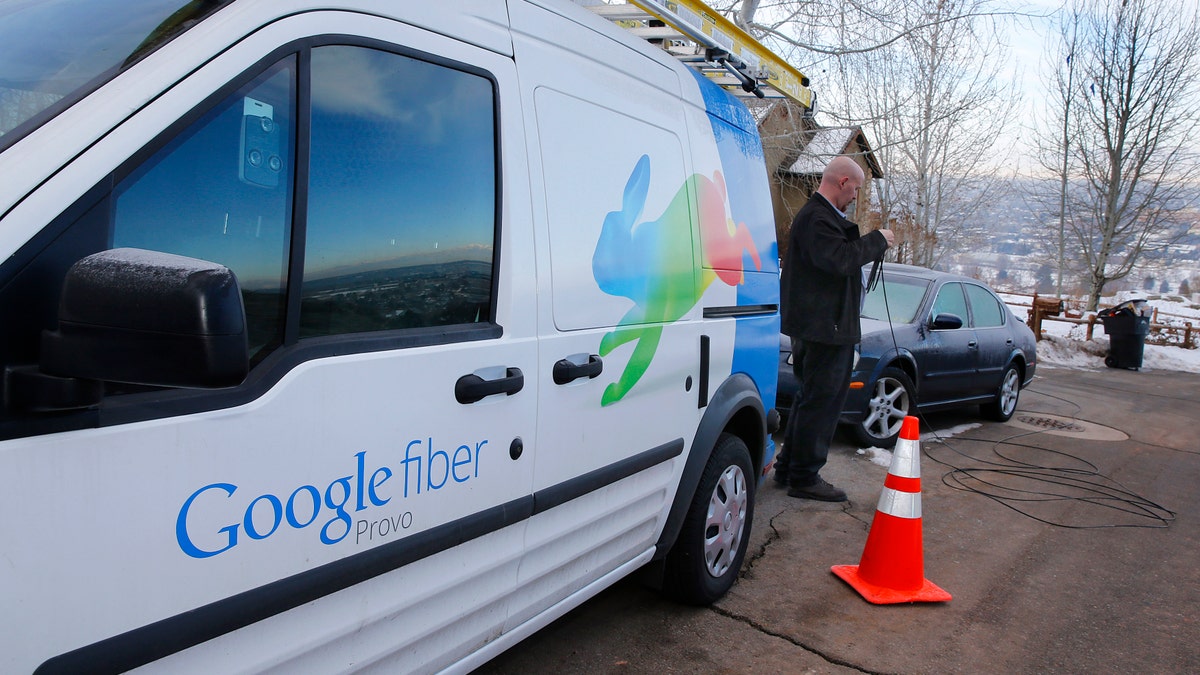
File photo: A technician gets cabling out of his truck to install Google Fiber in a residential home in Provo, Utah, January 2, 2014. (REUTERS/George Frey)
Google has big plans for its super-fast fiber Internet.
According to an FCC filing published last week, the Web giant plans to test wireless broadband tech in 24 U.S. locations, as was first reported by Business Insider. As the report notes, Google has been moving away from traditional fiber pipes in favor of new wireless-transmission technology on the 3.5-GHz band, which it's currently testing in Kansas City.
Now, the company has even grander plans: The FCC filing indicates that Google wants to test "experimental transmitters" in California, Colorado, Kansas, Nebraska, North Carolina, Utah, and Virginia for two years.
"We are working to test the viability of a wireless network that relies on newly available spectrum," a Google spokesman told Business Insider. "The project is in early stages today, but we hope this technology can one day help deliver more abundant Internet access to customers."
More From PCmag
Google did not immediately respond to PCMag's request for comment; the Federal Communications Commission declined to comment.
If approved, this program would mark another step toward a cheaper wireless future—one that got a lot closer since Google Fiber acquired gigabit provider Webpass in June. The San Francisco-based ISP uses point-to-point wireless Ethernet as well as fiber to connect business and residential customers to speeds up to 1Gbps.
Google Fiber launched in July 2012 offering 1 gigabit Internet access and TV service in select cities across the country. In the years since, it has expanded access to more areas.
But while folks in Atlanta, Austin, Kansas City (Missouri and Kansas), Nashville, and Provo are already surfing the super-fast Web, users in San Jose will have to wait.
The Mercury News this week reported that Google has halted plans to provide fiber Internet to San Jose, while it explores other (i.e. cheaper) options. Other California towns affected include Palo Alto, Santa Clara, Sunnyvale, and Google's own hometown of Mountain View, the News said.
This article originally appeared on PCMag.com.








































